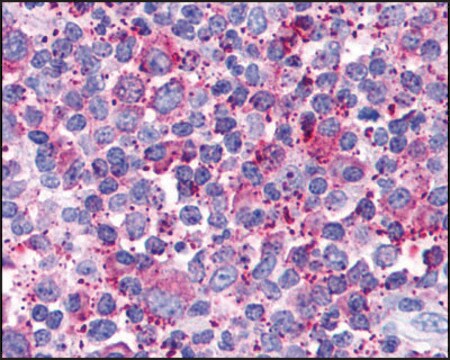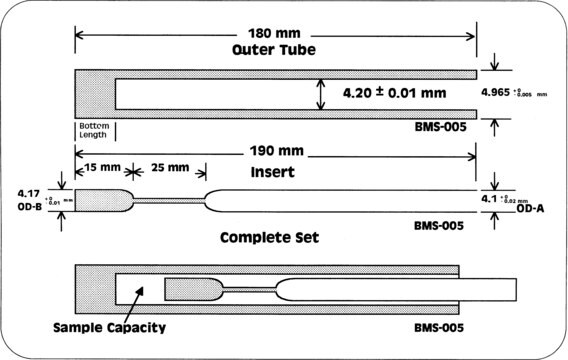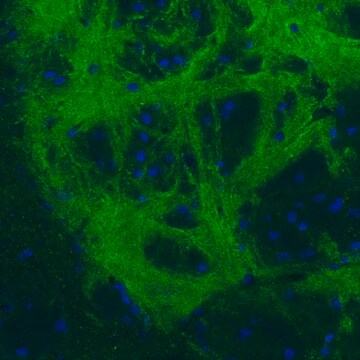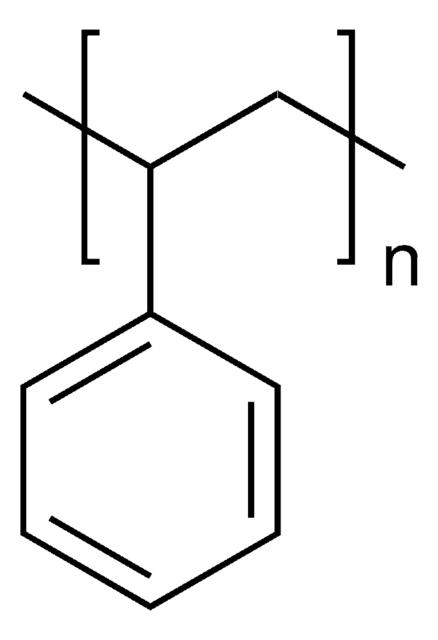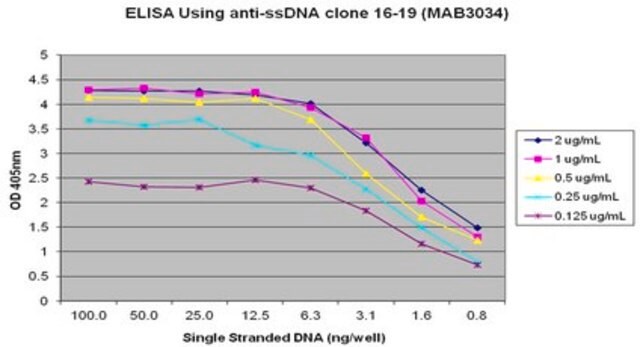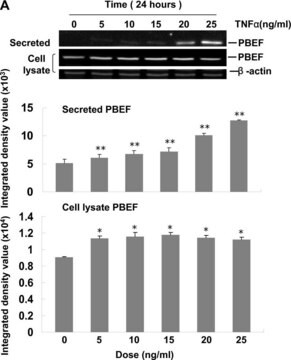AB9730
Anti-14-3-3 β Antibody
serum, Chemicon®
About This Item
IHC
WB
immunohistochemistry: suitable
western blot: suitable
Productos recomendados
origen biológico
rabbit
Nivel de calidad
forma del anticuerpo
serum
tipo de anticuerpo
primary antibodies
clon
polyclonal
reactividad de especies
rabbit, bovine, human, rat, mouse, sheep
fabricante / nombre comercial
Chemicon®
técnicas
ELISA: suitable
immunohistochemistry: suitable
western blot: suitable
Nº de acceso NCBI
Nº de acceso UniProt
Condiciones de envío
dry ice
modificación del objetivo postraduccional
unmodified
Información sobre el gen
human ... YWHAB(7529)
Descripción general
The 14-3-3 beta antibody is one of a panel of antibodies that were generated against 14-3-3 isoforms and have demonstrated their potential for use as an ELISA-based diagnostic tool. These antibodies will allow the research to investigate the role of this protein in key cellular processes and neurological disorders such as Creutzfeldt-Jakob, Alzheimer′s and Parkinson′s Disease.
Especificidad
Inmunógeno
Aplicación
Neuroscience
Neurodegenerative Diseases
Immunohistochemistry: 1:300-1:600 on mouse brain tissue which was treated by hydrated autoclaving at 121°C for 15 minutes prior to immunolabeling. Endogenous peroxidase was blocked with hydrogen peroxide in methanol and non-specific labeling with normal goat serum at 1:20 for 5 minutes.
ELISA
Optimal working dilutions must be determined by end user.
Descripción de destino
Ligadura / enlace
Forma física
Almacenamiento y estabilidad
During shipment, small volumes of product will occasionally become entrapped in the seal of the product vial. For products with volumes of 200 µL or less, we recommend gently tapping the vial on a hard surface or briefly centrifuging the vial in a tabletop centrifuge to dislodge any liquid in the container′s cap
Información legal
Cláusula de descargo de responsabilidad
¿No encuentra el producto adecuado?
Pruebe nuestro Herramienta de selección de productos.
Opcional
Código de clase de almacenamiento
11 - Combustible Solids
Clase de riesgo para el agua (WGK)
WGK 1
Punto de inflamabilidad (°F)
Not applicable
Punto de inflamabilidad (°C)
Not applicable
Certificados de análisis (COA)
Busque Certificados de análisis (COA) introduciendo el número de lote del producto. Los números de lote se encuentran en la etiqueta del producto después de las palabras «Lot» o «Batch»
¿Ya tiene este producto?
Encuentre la documentación para los productos que ha comprado recientemente en la Biblioteca de documentos.
Los clientes también vieron
Nuestro equipo de científicos tiene experiencia en todas las áreas de investigación: Ciencias de la vida, Ciencia de los materiales, Síntesis química, Cromatografía, Analítica y muchas otras.
Póngase en contacto con el Servicio técnico